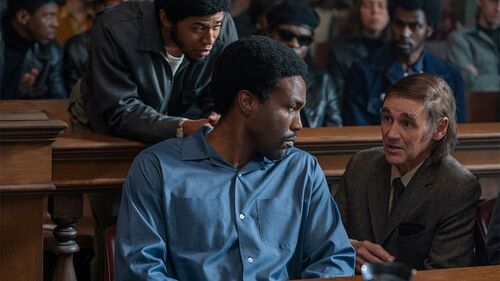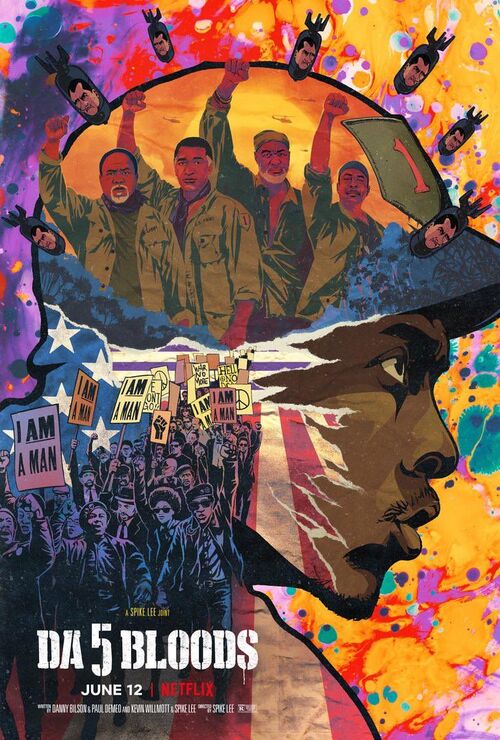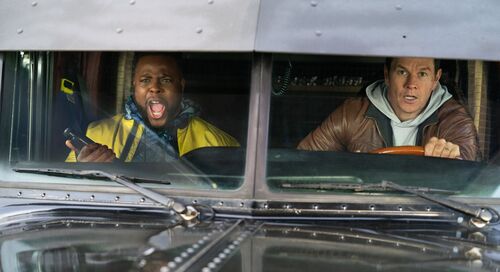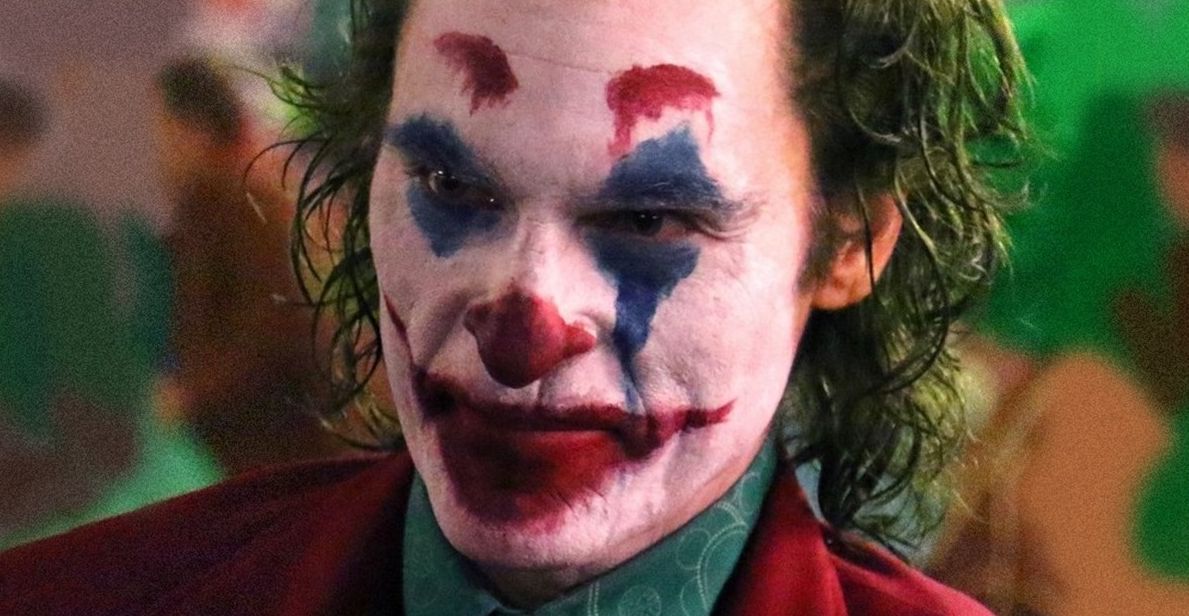
'Joker' review
 “We are all clowns.” It’s one of the defining statements of Todd Phillip’s grim take on an iconic fictional villain. It’s a message that transcends the screen and, one level, reminds us that the world got crazier as we droned on in oversized shoes. On the other hand, it’s almost an incendiary call to action for the disenfranchised; a call to embrace the craziness with torched intensity.
“We are all clowns.” It’s one of the defining statements of Todd Phillip’s grim take on an iconic fictional villain. It’s a message that transcends the screen and, one level, reminds us that the world got crazier as we droned on in oversized shoes. On the other hand, it’s almost an incendiary call to action for the disenfranchised; a call to embrace the craziness with torched intensity.
The odd thing is 'Joker' cares nothing for the struggle of the common man. It eats its cake and is gifted two extra. People are going to (or already) feel charged by this nihilistic dissection of society whilst others will dismiss it as right-wing propaganda. Even before most of the world had seen 'Joker', it had successfully courted outpourings of praise and derision alike.
Appreciating the clunky but inherent duality is central to understanding 'Joker' and its central character, the mentally ill Arthur Fleck (Joaquin Phoenix). I invoked body horror master David Cronenberg and the distressing line from ‘The Fly’ as I tried to process the film:
I’m an insect who dreamt he was a man and loved it. But now the dream is over and the insect is awake. I’m saying: ‘I’ll hurt you if you stay.’
Fleck is an insect only he’s done a horrible job of posing as a man in his dream. Like a cockroach, he invites nothing but violence. There is a sense of melancholy that never gives us respite from the opening scene, where Fleck fidgets with his face, forcing smiles and frowns all whiles his eyes remain a bottomless pit of sadness. He is prepping for his day job as a sign-twirling clown.
As if we needed a reminder that life has been terribly unkind to Fleck he is picked on and eventually beaten on by a group of overly vicious juveniles who stomp on him like it was the Lord’s work. Fleck later gets a gun for protection, which he clumsily drops when entertaining kids in the hospital. This then costs him his job and thrusts Fleck towards the end of his dream – which has more often than not has been a nightmare.
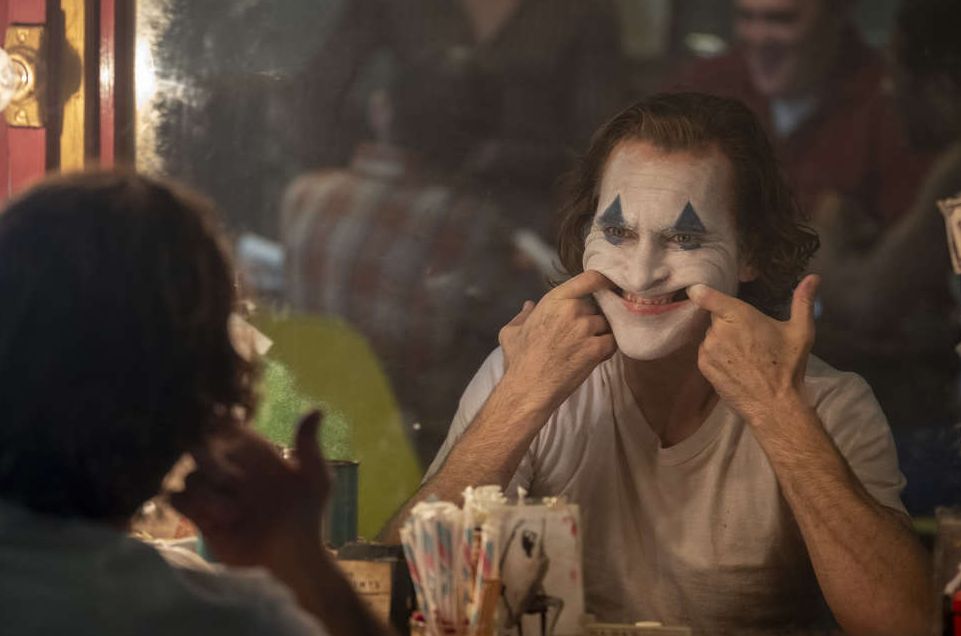
A lot will be made of Phoenix’s mesmerisingly ornate performance as Fleck and boy are there moments where he is just allowed to cook, like in the electrifying final 30 minutes. There is serpentine quality to him enforced by his pale gaunt frame that invites equal amounts of concern and revulsion. But Phoenix is also comfortable being but a tool in Philips’ hand, who defies a filmography littered with crass comedies, to direct a film with teeters between deft and unsubtle with purpose.
Philips views Fleck as a pitiful sub-human loner who gives his sorry mom (Frances Conroy) baths and is thirty years too late in his attempts to sync with regular society. There is a cringe quality to his ghastly laugh, which runs through all his attempts to interact with regular humour.
There’s this sweetly composed sequence in a comedy lounge with a beautiful array of vivid red lamps where Fleck forces out ill-timed laughs because he sees others responding to jokes, not because he gets them. And by design, to entrench his alienation, Fleck has a condition which sees him burst into hysterical laughter for no reason, mostly in inappropriate situations.
On top of all this, he aspires to be a stand-up comedian and longs to appear on a late-night show hosted by a comic named Murray Franklin. And yes, Franklin is played by Robert De Niro in one of the key nods to Martin Scorsese.
'Joker' flies its Scorsese influences proudly, retreading particular iconography from ‘Taxi Driver’ to pretentious and sometimes annoying effect. Joker is set in Gotham City of course but it was too easy to forget that fact. The mood screams hellish New York; the dour concrete cesspit Scorsese envisions in ‘Taxi Driver.’ It’s violent, filthy (there is a garbage strike and there are “super rats” on the rampage) and it's bursting at the seams with stark inequality.
The socio-politics and an eruption of violence give this film its first proper foothold into DC canon as we are introduced to Thomas Wayne, who is running for mayor. The heavy subjectivity means he comes across as quite unlikeable – a member of the detached one percent more likely to opt for “bootstraps” rhetoric than empathy. He wants to cleanse Gotham of the “clowns” and save the city from combusting in anarchy as a violent anti-rich uprising beckons.
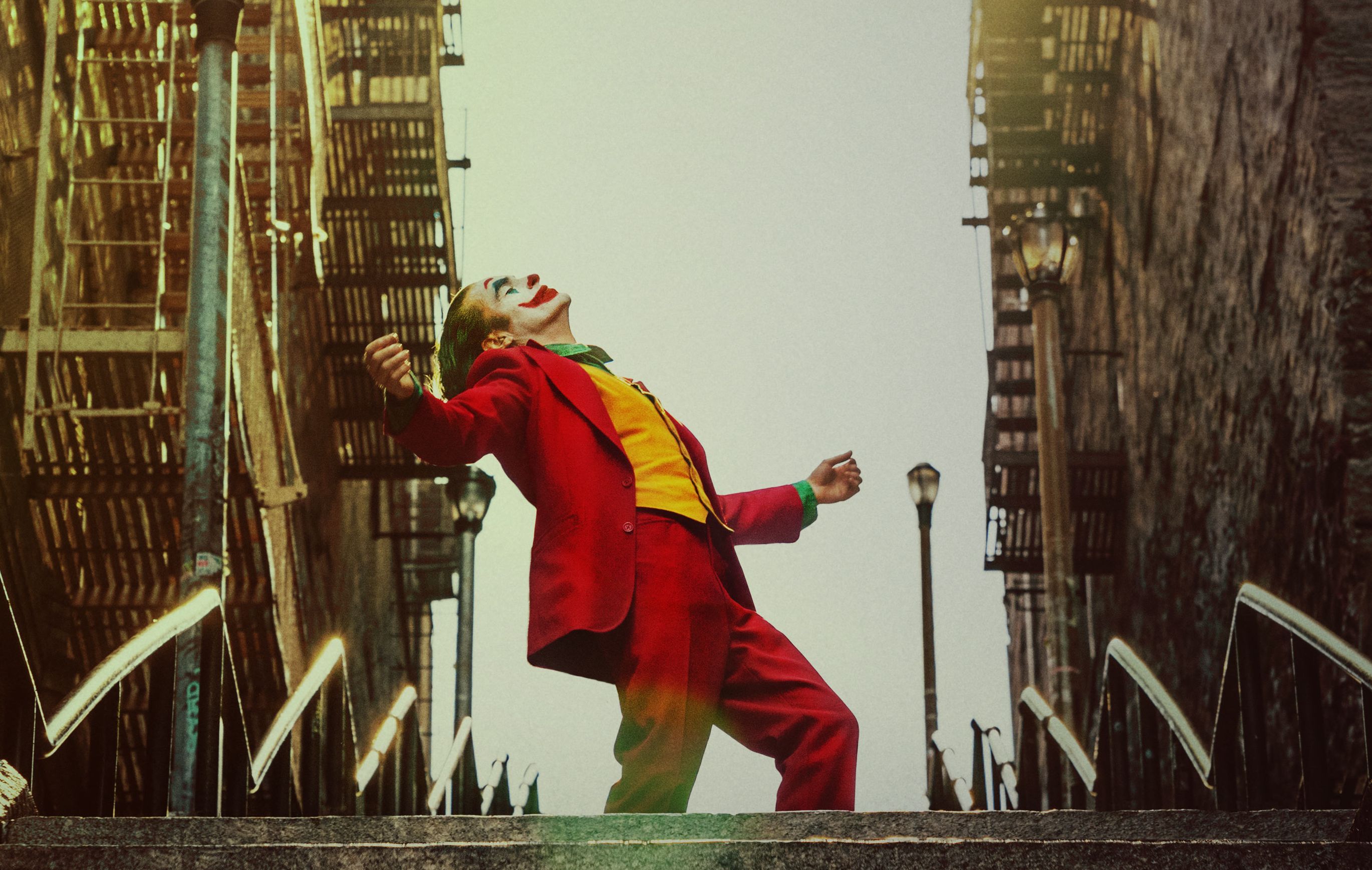
When the 'Joker' was announced, ‘The King of Comedy' seemed like the obvious parallel and it’s the only meta-layer Philips really needed to weave in because the story feels sturdier when it leans towards comic book elements. In ‘The King of Comedy’, De Niro played an unsympathetic unhinged fan stalking a star comedian. Now he’s on the other side of the screen being ogled by a terrible comedian who has lost touch with reality.
Philips makes some smart moves here all but declaring ‘Joker’ a spiritual sequel to ‘The King of Comedy’. The best sections of the film and most of the final act engage with ideas of toxic fandom and a repulsive allure of a broken media, which also evokes 1976’s ‘Network’.
'The King of Comedy' and 'Network' were prescient media satires and 'Joker' is as much an update to them as it is an outburst of anger at their neglect. We heard but didn’t listen, Philips seems to say, as he makes his provocative statement to once again try to grab our attention with shocks and make a more damning coda than Scorsese did in 1982.
Anarchy is what prevails as the film winds down and at this point, we think of Joaquin more in Joker terms than the mentally ill Fleck. He’s fully awake and brings the hurt in ultraviolent spurts of rage as he is crystalised as the avatar of a chaotic class uprising.
There are ideological threads running from the mayhem we see from the antagonists in ‘The Dark Knight’ and ‘The Dark Knight Rises’, the former of which features Heath Ledger’s monumental turn as the eponymous villain. But those films have one thing ‘Joker’ does not; those films have a Batman.
So it is worth asking if this film has a lower ceiling because it lacks a foil to balance the scales. That is unless you decide to view the seedy society as the villain. Then things get confusing because, whilst the society brought nothing but pain Fleck’s way, it deifies the Joker.
My head is starting to hurt and the clown make up on my face is starting to itch as I rack my head around what the ultimate joke could be. “You won’t get it,” the film seems to tell us in one of its numerous endings. I’ll still try. The ultimate joke, the killing joke, if you may, probably is that that Joker really isn’t about anything. It says a lot but never commits. The only thing it owns up to is the violence, which finally gets us a happy face.
